Tough Topics to Discuss
- Tough Topics
- Abortion
- Abuse/Incest
- Abusive Relationships
- Acne/Skincare
- Addiction/Sobriety
- Alcohol and Alcoholism
- Anxiety/Phobia
- Body Changes/Body Image
- Bullying
- Cutting/Self Harm
- Death and Grief
- Depression
- Bipolar Disorder
- Divorce
- Drugs
- Eating Disorders
- Food Insecurity
- Health and Hygiene
- Body Self Care
- Homelessness
- LGBTQ+
- Pregnancy
- PTSD in Veterans
- Rape/Sexual Assault Trauma
- Relationships
- Sex
- Sexually Transmitted Diseases (STDs)
- Stress Management
- Suicide
- Undocumented Status/Immigration
Speak to a counselor
Need to speak with someone?
Email personalcounseling@raritanval.edu for an appointment.
Helpful resources:
-
Alanon Family Group MeetingsAlanon and Alateen are support groups for people living with someone who is abusing alcohol or is troubled by someone's drinking.
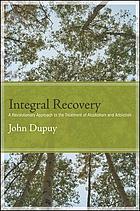
Integral Recovery: A revolutionary approach to the treatment of alcoholism and addiction
This book is for everyone who is suffering from the disease of addiction or who cares about someone who is: for addicts, their families and friends, and their health care providers. It is for those who are currently in recovery and looking for a way to shift their recovery into a higher gear--from just surviving and muddling through to becoming the absolute best version of themselves, from mere recovery to Integral Recovery. Integral Recovery combines the best of the treatment modalities of the past with the latest knowledge, techniques, and neurotechnologies in order to ensure a more holistic and lasting recovery.

Eating for Recovery: The essential nutritiion plan to reverse the physical damage of alcoholism
Common side effects of excessive drinking include poor digestive and liver function; problems with managing blood sugar; weakened circulatory, immune, and nervous systems; and impaired thinking and changes in mood-regulating hormones. While the primary focus of anyone recovering from alcoholism is staying sober, a critical part of recovery involves halting or reversing the physical damage of excessive alcohol consumption. This is a guide to healthy eating after alcoholism-broadening the goals of sobriety to include the repair of physical damage.
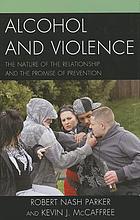
Alcohol and violence: The Nature of the relationship and the promise of prevention
Many people have experienced or witnessed situations in which people drinking alcohol get aggressive, obnoxious, and violent. Scientific research has shown evidence of a relationship between alcohol and violence, and even evidence that alcohol plays a role in causing violent and aggressive responses. The book explores a number of aspects of this relationship.
Books available at Evelyn S. Field Library
Books on alcoholism can be found in the library collection upstairs in the following section:
HV4999 - HV5035

Alcoholics Anonymous
The basic text of the Alcoholics Anonymous, which traces its roots, explores its precepts, and presents stories from participants that demonstrate the program's effectiveness.
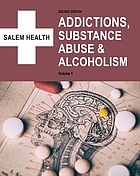
Addictions, Substance Abuse and Alcoholism
This second edition of Salem Health: Addictions, Substance Abuse & Alcoholism presents essays on a variety of topics concerning substance abuse and behavioral addictions and their related issues.
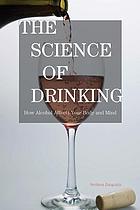
The Science of Drinking
This work discusses healthy versus unhealthy alcohol consumption, describes the health benefits of consuming alcohol in moderation, and explains how alcohol influences the brain and body.
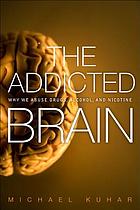
The Addicted Brain
In this work, the author, explains how and why addiction can destroy lives. He also presents advances in drug addiction treatment and prevention showing the long-term brain changes that drugs can cause and revealing why it can be so difficult for addicts to escape their grip.
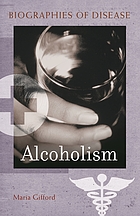
Alcoholism
Includes the origins of alcohol and discovery of alcoholism as a medical disease; the biology of alcoholism and its effects on the body; current diagnostic and treatment methods. The book also explores alcoholism-related problems such as domestic abuse, fetal alcohol syndrome, drunk driving, and suicide.
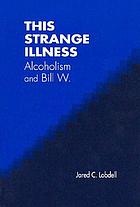
This Strange Illness
Discussion of alcoholism and treatment for alcoholism from early times to the repeal of prohibition.
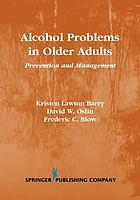
Alcohol Problems in Older Adults: Prevention & Management
This manual provides practical materials to detect, prevent, and intervene with older adults who are at-risk and problem drinkers. Including guides to alcohol screening, protocols for managing withdrawal care, and an English/Spanish Health Promotion Workbook for Older Adults, this book is designed as a hands-on text for use in a range of primary and mental health care settings.
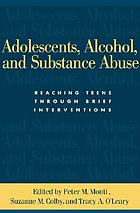
Adolescents, Alcohol and Substance Abuse
This volume reviews a range of empirically supported approaches to dealing with alcohol and other drug problems in this large and diverse clinical population. The focus is on motivationally based brief interventions that can be delivered in a variety of contexts, that address key developmental considerations, and that draw on the latest knowledge about the processes of addictive behavior change.
Abortion Resources
-
Violet’s Abortion Access [Unpregnant]ToolkitLGBTQ+ inclusive resources, legal support, transportation, access, trauma-informed resources.
- Last Updated: Jan 30, 2025 12:40 PM
- URL: https://library.raritanval.edu/toughtopics
- Print Page
